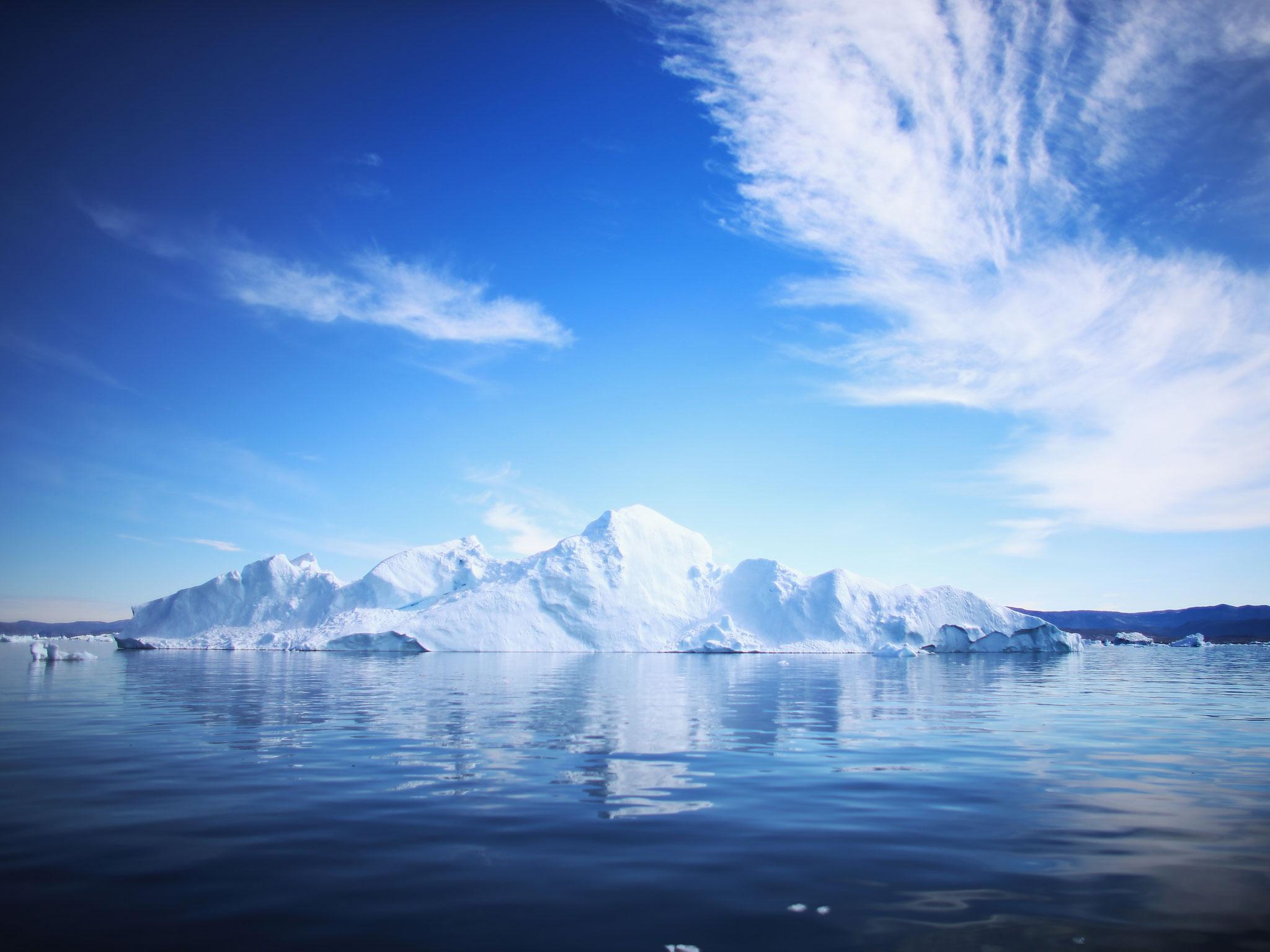Massive underwater walls could stop ‘runaway’ ice sheet collapse and limit sea level rise, say scientists
Glacial engineering could combat rising oceans, if greenhouse gas emissions are brought under control

Colossal underwater walls could help slow the melting of glaciers and reduce the imminent threat of rising sea levels, a study has suggested.
Large ice sheets at risk of collapse could be protected from upwelling warm water, by the creation of barriers on the seabed, scientists say.
The most effective intervention would “go beyond the scale” of any engineering project humanity has previously attempted. But the scientists warned such a scheme could only compliment efforts to reduce greenhouse gas emissions, which they say remains the most effective way of combating climate change and its effects.
"Doing geoengineering means often considering the unthinkable," said John Moore, a scientist at Beijing Normal University, China, and a professor of climate change at the University of Lapland, Finland.
But the “unthinkable” idea could theoretically prevent the catastrophic melting of vulnerable ice sheets including the UK-sized Thwaites glacier in west Antarctica, which is fast retreating.
"Thwaites could easily trigger a runaway [west Antarctic] ice sheet collapse that would ultimately raise global sea level by about three metres," said Michael Wolovick, a researcher at Princeton University's Department of Geosciences.
"We all understand that we have an urgent professional obligation to determine how much sea level rise society should expect, and how fast that sea level rise is likely to come. However, we would argue that there is also an obligation to try to come up with ways that society could protect itself against a rapid ice sheet collapse," Mr Wolovick added.
A subaquatic wall which held back 50 per cent of warm water from reaching the ice shelf base could have a 70 per cent chance of succeeding, “while larger walls would be even more likely to delay or even stop ice sheet collapse”, the study says.
But smaller scale projects could also have a significant impact, the team believes. A simpler intervention would consist of building isolated 300-metre-high mounds or columns on the sea floor.
The structures wouldn't block warm water but could support and hold back the glacier, helping it to regrow.
"In either case, we were imagining very simple structures, simply piles of sand or gravel on the ocean floor," said Mr Wolovick.
But even this smaller scale project would be comparable to the amount of material excavated to build the Suez Canal in Egypt in the 19th century.
These artificial columns would have a 30 per cent probability “of preventing a runaway collapse of the west Antarctic ice sheet for the foreseeable future”, according to the researchers’ computer models.
Despite the team’s encouraging results from the models, they do not advocate rapidly beginning building work, instead saying further research needs to be undertaken into the engineering practicalities of working in some of the earth’s least hospitable environments.
They have also warned they do not want their work to be seen as any kind of alternative to fighting climate change through reduction of harmful emissions.
10 photographs to show to anyone who doesn't believe in climate change
Show all 10"There are dishonest elements of society that will try to use our research to argue against the necessity of emissions' reductions. Our research does not in any way support that interpretation," they said.
"The more carbon we emit, the less likely it becomes that the ice sheets will survive in the long term at anything close to their present volume," Mr Wolovick added.
The study is published in the European Geosciences Union journal The Cryosphere.
Subscribe to Independent Premium to bookmark this article
Want to bookmark your favourite articles and stories to read or reference later? Start your Independent Premium subscription today.

Join our commenting forum
Join thought-provoking conversations, follow other Independent readers and see their replies